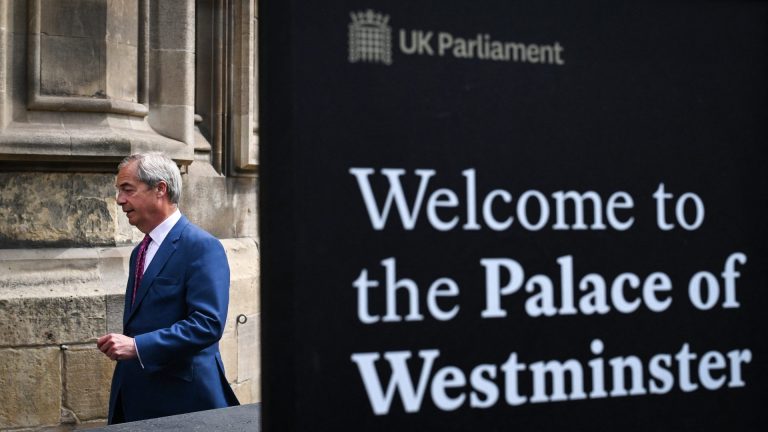Between freebies, fascists and defenestrations, it’s been a torrid hundred days for the prime minister who, above all else, was elected on the promise of being a steady hand on the tiller. Teething problems perhaps, but Keir Starmer doesn’t have five years to change the narrative with local, Scottish and Welsh elections coming much sooner.
Instead of joining the critical chorus reflecting on the last hundred days, we should ask what he can do in the next hundred to turn things around. Specifically, how can Starmer deliver meaningful change from one of the few PR successes from his time in the top job – his electorally popular ‘relationship reset’ with the EU?
Beneficial Alignment
With a US trade deal off the table regardless of the outcome on November 5, the prize on offer for divergence from our largest market has never been less clear. The costs meanwhile are stark. More divergence means more checks, more paperwork, more delays, more wastage, higher prices, lower growth.
This week, a new report found that regulatory divergence from the EU accounts for almost half of the long-term economic damage from Brexit and that closer alignment could deliver significant economic benefits particularly in high-value manufacturing.
Starmer may be stepping towards closer regulatory alignment through the deliberately boringly named Product safety And Metrology Bill, the trick is getting the EU to recognise UK standards as compatible with theirs, something that will require a framework or monitoring body.
Adjacent to broader regulatory alignments with the EU is the need for the UK to match how we tax carbon intensive imports. Starmer’s clear ambition for, commitment to and investment in, net zero notwithstanding, neglecting our Carbon Border Adjustment Mechanism (CBAM) will effectively allow the UK to offshore carbon heavy industry.
This is a bit self-defeating in tackling global climate change and not something the EU will miss. They’ll gum up UK exports with more checks, red tape and tariffs so they cannot undercut EU member states playing by the rules.
Matching our carbon border taxes with the EU will avoid this outcome, reassure investors and is in perfect harmony with Starmer’s net zero ambitions.
Youth mobility
Last week, new research from Best for Britain found that more people left the UK using our youth mobility scheme with Australia than the combined total that came to the UK under all of our schemes with 13 countries. So a reciprocal youth mobility scheme with the EU may in fact reduce net migration, while providing opportunities for young people, addressing labour shortages, and driving economic growth, not to mention the limitless benefits of cultural exchange for both the UK and Europe
Youth mobility is – sadly – not a return to freedom of movement. People have to apply, pay a fee, their stay is time+limited, they cannot access benefits, they cannot bring family and the government can cap the numbers. They could even start off low as a trial, increasing the cap if the scheme proves beneficial.
And, for the cherry on top, Best for Britain polling shows it’s incredibly popular. This is the clearest win-win on offer for the prime minister.
Help Britain’s performers
Already under the cosh from Brexit driving up costs and putting them bottom of the list for opportunities on the continent, Britain’s thespians, musicians, and other touring artists will be dealt another blow when the EU introduces its new biometric entry/exit system, making it impossible for them to outstay their 90 out of 180 days by even a few hours. The government should agree a cultural worker visa waiver with the EU, sooner rather than later.
A new Board of Trade
Since its resurrection in 2017, the UK Board of Trade has been headed up by a government minister and on hand to cheerlead the ‘success’ of new deals without scrutinising how trade is actually performing or advising on improvements. Essentially, it was a way for the last government to mark its own homework.
Under its watchful eye we got the Australia and New Zealand trade deals, which look set to cut the legs out from British farmers while adding just 0.08% to GDP by 2035, and the UK’s accession to the CPTPP, putting us on the road for greater divergence from high British standards and protections, expected to add only 0.04% to GDP. With advisers including Lord Daniel ‘Brain of Brexit’ Hannan, it’s long overdue for overhaul.
Like Sweden, our government should make the UK Board of Trade independent – an OBR for trade – to impartially assess the UK’s trading performance, scrutinise the value and cost of new trade deals and advise the government.
This is something the current trade secretary expressed support for in opposition and is reportedly making steps towards in removing some Tory appointees. A new Board of Trade will install a strategic approach to trade while demonstrating stark contrast to the potemkin backslapping of Badenoch, Truss and Johnson.
The success of this government will be measured by the yardstick of their choosing – economic growth. Paradoxically, they have been cagey about pulling these levers which are most likely to deliver it most quickly.
Quickly is rarely a word one associates with EU negotiations, but Starmer’s meeting with Ursula von der Leyen last week where they agreed to immediate, regular and high level meetings suggests that it’s possible for progress to be made before the TCA review in 2026.
Naomi Smith is chief executive of Best for Britain









